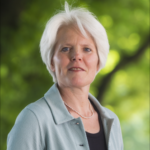General
Adapt at Work is a practice-based research project in higher education. A consortium of universities and universities of applied sciences in the Netherlands is investigating WBL environments in bachelor and master programmes, with a focus on developing the adaptive expertise (AE) of prospective professionals.
General
Adapt at Work is a practice-based research project in higher education. A consortium of universities and universities of applied sciences in the Netherlands is investigating WBL environments in bachelor and master programmes, with a focus on developing the adaptive expertise (AE) of prospective professionals. Adapt at Work aims to provide insight into key mechanisms and design practical tools for the development of AE during workplace learning.
AE and flexibility are important competencies, as the future of professions is constantly changing. Professionals will have to adapt to changing working conditions and be able to shape those changes.
The development of AE requires WBL environments where students can practice with ‘ill-structured’ work assignments, in addition to more traditional master-apprentice learning environments and theory-driven lectures. Educational institutions are experimenting with integrative forms of education such as challenge-based education, case-based reasoning, inter-professional assignments and innovative work-based learning environments (labs and workshops).
Consortium partners, 5 universities and 6 universities of applied sciences, are introducing educational innovations through Adapt at Work. The project thus covers a wide range of professional domains (including medical and allied health, social work, engineering, education and business).
The key question during the research is: ‘How can the development of adaptive expertise be stimulated during workplace learning in the context of higher professional education?’
We focus on the learning of (future) professionals, asking what mechanisms occur that lead to adaptive expertise development, and what contexts shape the functioning of these mechanisms and the outcomes they produce.
At the heart of the project are comparative and thematic case studies which describe and explain how these innovations contribute to the development of AE. To enable this, the project starts with three preparatory studies: a review study into concepts and operationalisations of AE; a review study on key factors of WBL environments that stimulate AE and a methodological study to support realistic, comparative case studies.
The project constantly shuttles between theory development and practical testing. We have opted for a combination of design-based research (DBR) and comparative research.
Lecturers play an active role within DBR, namely in the design and implementation of interventions in order to formulate robust design principles that can be applied in other environments. We take a realistic approach in DBR, as we are not looking for ‘gold standards’ or ‘the best way’ to implement an educational intervention. Rather, we want to unravel the mechanisms that explain how complex interventions work or why they fail in certain contexts and environments.
Our research programme is structured in three phases:

The discussions in the (soon-to-be) consortium show that there are shared views on the concept of ‘adaptive expertise’: the ability to adapt effectively to new, unpredictable professional situations. This ability is based on a strong knowledge base and is characterized not only by cognitive aspects but also by attitude aspects, including growth mindset, creativity and willingness to innovate. The relationship between routine expertise and adaptive expertise also generates discussion: is that relationship sequential, conditional or distinctive? Another discussion is to what extent adaptive expertise, which involves adjusting routine when circumstances demand it, also plays a role in carrying out new tasks in new circumstances. These discussions have been converted into a question for a review of reviews on the concept of ‘adaptive expertise’ (see work package 1).
The visions on workplace learning also lead to both unanimity and discussion. It is generally agreed that the development of expertise requires authentic workplace learning environments where routine can be acquired. At the same time, the innovations introduced show great diversity in terms of hybridity (degree of authenticity of the WBL environment) and organisation (on and off campus). Markauskaite and Goodyear (2016) provide a theoretical basis for the analysis of educational interventions aimed at ‘epistemic fluency’. Partly on this basis, a realist review will be set up of educational interventions that potentially lead to the development of adaptive expertise (see work package 2).
All consortium partners are involved in educational innovation, aimed at developing ‘future-proof’ expertise among their students. This translates into attention for the development of adaptive expertise (under different names) by means of authentic assignments for students and by providing a solid theoretical basis. The educational approaches differ in aspects such as disciplinarity (monodisciplinary or interdisciplinary), nature of the assignments (design-based or research-oriented), involvement of the work field or professionals (client versus participant) and positioning of work-based learning processes (from simulated within the institution to authentic workplace learning). By using realist evaluation we want to capitalise on these differences in order to answer the question ‘which educational approach works in which circumstances; and which mechanisms play a role in this?’. To this end, the research methodology will be worked out in work package 3, after which the educational innovations introduced in work package 4 will be evaluated and compared. This will be done by means of case studies, in which the educational practical theories used will be clarified (based on work packages 1 and 2) and tested based on the results.
In work package 5 we will try to answer questions by means of a cross-case analysis that we will clarify using the results of the first 4 work packages. In work package 6 we will finalise the modelling and products for valorisation (work package 7).
Project managers
-

- Prof.dr. Loek Nieuwenhuis
-

- Prof.dr. Lia Fluit
-

- Dr. Wietske Kuijer-Siebelink
Work package 1: Review of reviews into the development of adaptive expertise
The review of reviews aims to systematically review the literature on the concept of adaptive expertise.
Work package 1: Review of reviews into the development of adaptive expertise
The review of reviews aims to systematically review the literature on the concept of adaptive expertise. Which conceptualisations are used, which models can be distinguished for the development of adaptive expertise, and how do flexibility, adaptive expertise and routine expertise relate to each other? Does development differ between professional domains? The review of reviews not only aims to provide conceptual clarity, but also provides an overview of measuring instruments of adaptive expertise, adaptive performance and the quality of these instruments. The literature outline in the essay by Nieuwenhuis and Fluit (2019) and the literature contributed by the participants in the work meetings in preparation for this proposal will form the starting point for the development of search strategies. The search strategy of work package 1 will be aligned with that of work package 2. The results of this review of reviews form input for following work packages: which development models, for example, are relevant as theoretical foundations for the design of study programmes and which assessment instruments are available for mapping the effectiveness of these educational interventions? We aim for a scientific publication, and valorisation for practice (see work package 7).
Work package leaders
-

- Prof.dr. Jan van Tartwijk
-

- Prof.dr. Marieke van der Schaaf
Researchers
-

- Drs. Elske Hissink
-

- Dr. Els Roskam-Pelgrim
-

- Dr. Wietske Kuijer-Siebelink
-

- Lotte Bus MSc.
Work package 2: Realist review on educational interventions
This literature study aims to answer the question how work-based learning contributes to developing adaptive expertise in a higher education context, under which circumstances, how, and why.
Work package 2: Realist review on educational interventions
This literature study aims to answer the question how work-based learning contributes to developing adaptive expertise in a higher education context, under which circumstances, how, and why. This question is answered by conducting a realist review of effective mechanisms which are described in the scientific literature and are (more or less) proven. We focus on all learners in a work-based learning context, both students in higher education and professionals.
The realist review generates the basis for the clarification of the theories that are assumed to be behind the different forms of innovative workplace learning for the development of adaptive expertise. Based on an initial programme theory and the central research question, we will formulate subquestions with which to study the literature. We follow the guidelines of Pawson et al. (1977) for the implementation and delineation of the review and the guidelines of Wong et al. (2013) for publication of the results. In alignment with work package 1, we will define the concept of adaptive expertise and the professional domains to be explored.
The realist approach requires an iterative approach in which the findings from each phase are discussed within the team and with the sounding board group (see below) and the other consortium partners. In this way, new insights are incorporated into the further collection and interpretation of the data and thus strengthen practical theories. These discussions will largely take place in the work meetings as described under work package 7.
The outcomes of this review, together with the outcomes of work package 1, form the basis for the description and evaluation framework (as elaborated in work package 3) for carrying out the case studies and cross-cases (work package 4 and work package 5). In addition, the findings from this work package will be processed into a scientific publication and made accessible for use in practice (work package 7).
Work package leaders
-

- Dr. Marleen Groenier
-

- Prof.dr. Maaike Endedijk
Researchers
-

- Dr. Jan Kamphorst
-

- Dr. Anne Khaled
-

- Dr. Wietske Kuijer-Siebelink
-

- Drs. Tanja Tankink
-

- Prof.dr. Lia Fluit
Work package 3: Development of methodology for the case studies.
Based on a realist approach (Pawson & Tilley, 1997), this work package envisages a research design for comparative case studies (work package 4) and cross-case analyses (work package 6), based among other things on the results of work packages 1 and 2.
Work package 3: Development of methodology for the case studies.
Based on a realist approach (Pawson & Tilley, 1997), this work package envisages a research design for comparative case studies (work package 4) and thematic and cross-case analyses (work package 5 an 6), based among other things on the results of work packages 1 and 2. A process consisting of four steps will be used to set up a feasible and substantiated research design and at the same time introduce all consortium partners to the realist approach.
Step 1. Development of a case description format for hybrid learning environments (see: Carvalho & Goodyear, 2018), which will be used to describe the initial situation of each case concerned and possibly available data per case.
Step 2. The results of work package 1 and work package 2 are translated into research questions or hypotheses in the form of CMO configurations (context-mechanism-yield chains), with which practical theories from the cases can be formalised (mid-range theory).
Step 3. In a matrix format, research questions and hypotheses are assigned to the most obvious cases, in order to optimise the possibilities to refine programme theories (see: Shearn et al. 2017).
Step 4. Design of a data collection plan. Data collection is expected to take place mainly during regular educational activities and not during experimentally designed interventions (Pawson & Tilley, 1997). We will strive to involve students, lecturers and professionals (who are involved in the work-based learning contexts).
The results of this work package form the methodical basis for the case studies in work package 4, the in-depth studies in work package 5 and the cross-case analyses in work package 6.
Work package leader
-

- Dr. Carla Oonk
Researchers
-

- Dr. Irene Visscher-Voerman
-

- Prof.dr. Hans Savelberg
-

- Dr. Wietske Kuijer-Siebelink
Work package 4: Execution of individual case studies
The third research year will largely be devoted to describing and comparing the educational innovations introduced, based on the results of work packages 1-3. A local programme theory will be formulated for the individual cases.
Work package 4: Execution of individual case studies
The second research year will largely be devoted to describing and comparing the educational innovations introduced, based on the results of work packages 1-3. The central question here is how the different cases contribute to the development of adaptive expertise and what, according to them, are the contextual factors, underlying mechanisms and results that play a role in this.
The educational designs and (implicit) practical theories from the cases are subjected to an evidence-informed assessment, using the CMO chains from the format from work package 3. The case descriptions provide a rich source of information on the interventions developed and implemented by institutions. For each case study this provides insight into the working mechanisms (what works, why and under what circumstances). Comparative analyses will be performed to identify generalizable insights. Think of an analysis that zooms in on the ambition of adaptive expertise, characteristics of the professional domain, forms of workplace learning, involvement of students and the work field, requirements for the qualities of lecturers, and supervision and preconditions.
This work package will be led by the colleagues of Fontys University of Applied Sciences. Researchers from HAN, WUR and Utrecht University of Applied Sciences will supervise the case studies. All consortium partners will make an active contribution to the case studies in their capacity as case owners, with it being agreed that this will take place partly through in-kind co-financing, as each introduced educational innovation will also be examined and evaluated within their own educational institution.
The results of the first four work packages will be reported in the interim report. In work package 7, adequate valorisation activities will be initiated to make these results accessible to fellow institutions in higher education.
Work package leaders
-

- Dr. Petra Swennenhuis
-

- Dr. Wietske Kuijer-Siebelink
Researchers
-

- Kazimier Helfenrath MSc.
-

- Lotte Bus MSc.
-

- Nienke Boere MSc.
-

- Dr. Anne Khaled
Work package 5: In-depth research on relevant themes related to AE development
In the final year of the project, three in-depth studies will be conducted around themes emerging from the previous work packages: task complexity, role of the educator and collaboration.
Work package 5: In-depth research on relevant themes related to AE development
In the final year of the project, three in-depth studies will be conducted around themes emerging from the previous work packages: task complexity, role of the educator and collaboration.
Work package 5a Task complexity
The hypothesis is that authenticity, task complexity and degree of freedom put learners in a situation where they have to learn to navigate difficult contexts and are challenged to go outside their own comfort zone. The assignment/task and learning environment provides space to be allowed to make mistakes and reflect on them, allowing learners to gain new insights on what works and does not work in different situations and build up action repertoire.
Work package leaders
Researchers
Work package 5b Role of the supervisor
The central question here is what are competent actions of supervisors that support AE development in work-related contexts according to students and (workplace and academic) supervisors? Certain specific behaviors of supervisors are expected to contribute or perhaps hinder the development of AE. Also, the context of supervision, such as roles of various supervisors, or the profession being trained for, is likely to play a role.
Work package leaders
Researchers
Work package 5c Cooperation
The central question here is what role teamwork and cross-boundary learning has in the development of AE in work-related contexts. The expectation is that through interaction with others, learners will rethink their own thinking, and need to integrate it to arrive at an approach to the problem (shifts).
Work Package leaders
Researchers
Work package 6: Cross-case analysis and refining the initial programme theory
This work package uses cross-case analysis to further refine the initial programme theory as established in the first half of this project.
Work package 6: Cross-case analysis and refining the initial programme theory
This work package uses cross-case analysis to further refine the initial programme theory as established in the first half of this project. This work package answers the question in what works, for whom, under what circumstances and why in the development of adaptive expertise in work-related contexts.
Work package leaders
Researchers
Work package 7: Valorisation
With work package 7 we want to organise permanent attention for valorisation outside the consortium (fellow institutions for higher education; professional groups; student and alumni organisations) and for the applicability of the results for improving higher education.
Work package 7: Valorisation
The research programme on flexible higher education has been used by NRO as practice-based research. This is reflected internally in the programme in the chosen methodology and consortium formation. With work package 7 we want to organise permanent attention for valorisation outside the consortium (fellow institutions for higher education; professional groups; student and alumni organisations) and for the applicability of the results for improving higher education.
Starting points for valorisation:
- The project is aimed at developing both scientific and practically applicable knowledge and expertise (for higher education and lifelong learning in the professional practice).
- Both target groups (higher education and professional practice) are involved in product and service development, so that the project not only generates scientific knowledge in the form of publications, but also produces applicable products that meet the needs of the target group.
- The work conferences, which are scheduled at the end of each semester, will in any case be partly public, so that colleagues from universities and universities of applied sciences can follow the results of the project and we can work together on product development.
- In consultation with NRO we will work on newsletters and websites relating to the project. Through these channels and social media, we will share news and video animations.
The consortium partners will be challenged and supported to publicise the project within their own institution.
Work package leaders
-

- Prof.dr. Lia Fluit
-

- Drs. Tanja Tankink
Researchers
-

- Prof.dr. Hans Savelberg
-

- Prof.dr. Wieger Bakker








